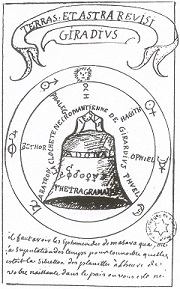Very Superstitious
To mark Friday the thirteenth, historian Dr Peter Maxwell-Stuart provides us with an insight into superstition and the history behind the phrase ‘unlucky for some’. Is it really rational behaviour or just a trick of the mind? From the traditional to the bizarre, read on for the ancient tales behind some familiar – and not so familiar – superstitions.

The origins of the belief that 13 is an unlucky number have been traced back to Norse mythology, witches’ covens, the Knights Templar, and the Last Supper. This is all nonsense, however, as the unluckiness of 13 goes back to the 17th century when it was considered that if 13 persons sat down at a dinner table, one would die soon after. The belief was recorded in the memoirs of the second Earl of Rochester, who experienced the truth of it second-hand by the death of a chaplain who had the misfortune to be one of 13 and was found dead in his bed the next morning.
Why 13? The answer is likely to be that the Earl of Rochester, a well-known wag, was having a joke, or that 13 is an inconvenient number to accommodate at table. The hey-day of this superstition, however, came in the 19th century when dozens of Thirteen Clubs were formed in the USA, so called because their membership consisted of 13 who met regularly to dine in defiance of triskaidekaphobia (fear of the number 13) and managed to continue until the 1950s without significant loss of any diners.
Farcical thumbing of noses is one thing, of course, but can superstition be taken seriously? It all depends on what one means by ‘superstition’. Is the person who wears a copper bracelet to counteract the effects of arthritis superstitious, or are there explanations for his or her behaviour which will be sufficient to remove that slur? Nowadays, the noun and its adjective are used loosely, indeed carelessly, to refer to beliefs or actions inconsistent with and ridiculed by the prevailing dominant scientific discourse, which regards its own notions as rational and dismisses others as irrational.

It is common, for example, to hear the ancient world described as ‘superstitious’ rather than ‘scrupulously religious’ or ‘over-careful in religious observation’, which is what the word actually means according to its etymology. So when Petronius Arbiter has one of his characters say one should enter a room right foot first, or Pliny the Elder notes that after eating eggs or snails one should break their shells to avoid bad luck, or Theophrastus records that someone he calls a ‘god-fearer’ (regularly mistranslated as ‘superstitious man’) spits on his chest whenever he sees a mad person or an epileptic, are they recording superstitions or the niceties of a deeply religious culture acutely aware of its close relationship with its divinities?
In a world alive with non-human entities which are more powerful than human beings, and are capable of acting benevolently or malevolently according to their passing whim or prevailing temperament, it surely makes sense for humans to act and speak in such ways as will please those entities and avoid antagonising them. This is entirely rational. It may not be our notion of what constitutes rational behaviour, but we live in a universe we view from a quite different angle, and it is therefore cultural snobbery for us to protest that the ancients were irrational because they did not live in our modern world.
That older universe was one in which magic was neither a series of conjuring-tricks nor a set of bizarre, ineffectual techniques for achieving one’s desired ends. Behind the charms, the rituals, the words and the gestures of magic lay a universe in which everything was connected to everything else in a web of correspondences and sympathies which meant that one thing could and probably would affect another, and it is this network of inter-relationships which often accounts for apparent superstitions.

Hence, for example, whistling, especially at sea, is ill-omened because it is reminiscent of the sound made by winds during a storm; and red hair causes a frisson because Set, the Egyptian god of the desert, was portrayed as red, and the red desert was the place of death as opposed to the black land of the living. Bad luck is associated with walking under a ladder because ladders were frequently used to support those about to be hanged, and so passing beneath them meant one was walking in the shadow of a violent death; and knots were problematical in as much as they prevented sexual intercourse, as James VI remarked in his Daemonologie, listing among the kind of charms commonly employed by those he calls the simple-minded one in which knots were tied in the points – cords or laces used where we would have buttons – the effect being to ‘stay married folks to have naturally ado with other’. Indeed, so common was this piece of magic that there was a French saying, ‘to have a knot in one’s point’, meaning to be unable to achieve an erection.
Mirrors, too, are fraught with correspondences. Their brightly polished surfaces are unsettling, for while it is true that we discover our own images therein, those images are reversed – left becomes right, intelligible script turns into unintelligible symbols – and we have the sensation not so much of seeing a reflection as of looking through a surface into another parallel and different world, as Lewis Carroll amusingly illustrated. This is why Jean-Baptiste Thiers applauded the judgement of the French Faculty of Theology that ‘it is idolatry to invoke demons and lock them up in mirrors’, and why mirrors were frequently used in divination. Before the advent of modern techniques of glass-making and silvering, mirrors were made from metal, their surfaces either convex or concave and rather small. So the figures in them were not at all easy to make out and were usually distorted – hence St Paul’s phrase ‘through a glass darkly’ where ‘darkly’ means ‘in the form of a saying which is difficult to understand’.
Breaking a mirror, then, implies that one has destroyed the means of glimpsing a different world in which one’s doppelganger has its existence, and thus a way of seeing both present and future. One may also have released any enclosed demons from their prison. Either way, the action is unlucky. It was a long-standing practice, too, to cover a mirror in the presence of death. This means that the living will not be able to see the spirit of the dead person who will have left this world for another which may be glimpsed in the mirror’s surface, and the dead person will not be able to look through the mirror into the world he or she has just left, and feel such regret or fear as will cause him or her to try to return. The dead must be helped to accommodate themselves to their new existence, not carelessly allowed to infest and scare both the living and themselves.
These practicalities in relation to magic can also be seen in the custom of carrying a bride over the threshold of her new home, a custom as old as the Romans. It means she will not take her first step over the place under which instruments of hostile magic are regularly buried, and so blight her marriage from the start; and throwing coins into a well or fountain – another Roman observance – propitiates the spirits who live there, Naiads, like all nymphs and similar creatures, having uncertain tempers and the inclination to turn hostile in a moment unless treated with respect.

Ringing church bells, too, has nothing to do with summoning the faithful to divine service, (although it certainly fulfils such a function as well). The sound is intended to drive away demons, as Caxton pointed out in his Golden Legend: ‘The evil spirits that be in the region of the air hesitate much when they hear the trumps of God, which be the bells ringing.’
Demons may also be driven away by spitting. That is why Theophrastus’s god-fearer spat when he saw a madman or an epileptic, because both were afflicted by an evil spirit and the spitting kept possible contagion at bay. Some such notion lies behind Jesus’s use of spittle to cure a man who was deaf and dumb, and when people spit on their hand before concluding a bargain, they are preventing an evil spirit from ruining the new relationship by its presence.
Superstitions, then, far from being nervous psychological tics or examples of irrational behaviour are, on the contrary, entirely rational reactions to particular situations in a world conceived to work by rules and principles other than those we acknowledge at present, although how long it may be before our certainties turn into intellectual redundancies is difficult to say. We are undoubtedly too attached to the idea that what we think we know is the only possible knowledge there is to know, and the only one worth having.
A word or two from Cardinal Newman may therefore not come altogether amiss. ‘I do not shrink’, he wrote in his Apologia, ‘from uttering my firm conviction that it would be a gain to the country were it vastly more superstitious, more bigoted, more gloomy, more fierce in its religion than at present it shows itself to be… Rationalism is the great evil of the day’.
Dr Peter Maxwell-Stuart is honorary reader with the School of History. Peter’s teaching and research interests include the occult sciences, particularly of early modern Europe, specialising in magic and witchcraft. This article was first published in The StAndard.
Category Public interest stories